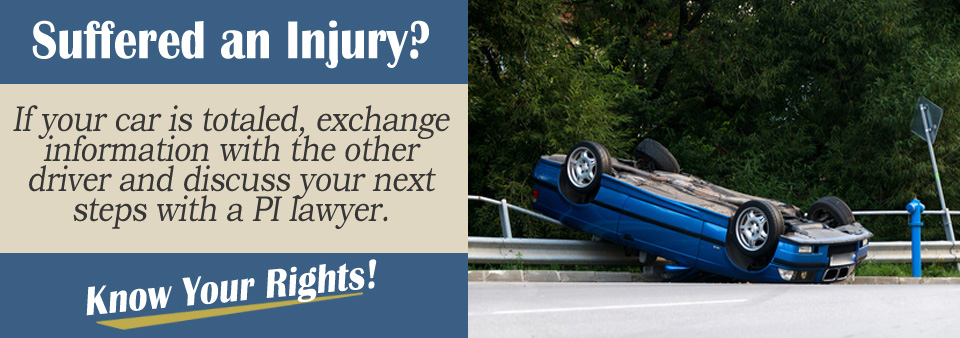All car crashes can be traumatic. They can happen when you least expect them and cause injuries, damage to your car, pain, inconvenience, and frustration. Even if you are well insured, the question of who was at fault may be the first thing you want to consider.
A personal injury claim can help to pay not only for medical treatment for your injuries and those of your passengers, but also for lost earnings and the replacement cost of a car if it has been totaled. It is wise to contact a personal injury attorney as soon as you can after seeking medical appraisal.
Tip #1: Make Sure That Everyone is Safe Before Considering the State of Your Car
However much you are attached to your car, if it has been badly damaged, remember that your life and that of anyone else who was involved in the crash is far more important.
Get away from the car in case of further damage, especially if there is a chance of an explosion or fire. Call an ambulance if necessary and seek first aid from anyone who stops at the scene until medical help arrives.
This is no time to interact with the driver, no matter what you think of his or her actions. Car crashes can be emotional, and it is easy for people to say and do things in the heat of the moment that could lead to further injury if this is not avoided.
Tip #2: Inform the Police Before Calling a Tow Truck or Your Insurance Company
You, or someone at the scene of the accident, will need to inform the police by calling 911 as soon as possible. If your car has been badly damaged and it looks unrepairable, or you know that it is unlikely to be driven away, you will need to inform your insurance company.

They may arrange for a tow truck or advise you of a company that can tow your vehicle away for mechanical inspection. However, the vehicle should not be touched until the police have arrived and questioned those involved. Don’t forget to ask the police officer(s) how to arrange to collect a copy of the police report they complete.
Tip #3: Exchange Information with the Other Driver(s)
You will need to exchange basic contact information with any other drivers directly involved in the crash. That means names, telephone numbers, email addresses, license plate and insurance details.
If you are badly injured and awaiting an ambulance, you may be able to ask someone else at the scene to do this for you and then email the details to you later.
Tip #4: Record the Crash Scene if Possible and Take Witness Details
If you are physically fit enough to do so, you may be able to record the scene of the crash and your own version of what happened. It’s easier to jot this down as soon as you can before you start to forget. Take photos of the vehicles if you can; a cell phone is quite adequate for this task.
If there is anyone else around who is likely to have been an eye witness, ask them for their names and contact details and to make a brief statement of what they saw. You can use your cell phone if you don’t have anything to write with. Many cell phones have a basic voice recorder that can record witness details.
Tip #5: Contact a Personal Injury Attorney as Soon as You are Fit to Do So
It’s in your own interest to recover compensation from a driver whose negligence caused you to lose your car and injure you and anyone else in the car with you. If you are considering making a personal injury claim against the other driver, you should discuss your accident with an experienced personal injury attorney before initiating a claim.
Successful claims depend on sufficient evidence that can prove that someone else was at fault. A successful claim should address the costs related to your own injuries as well as include sufficient payment for a replacement vehicle, including associated on-road costs and the cost of towing your own vehicle away from the crash scene.